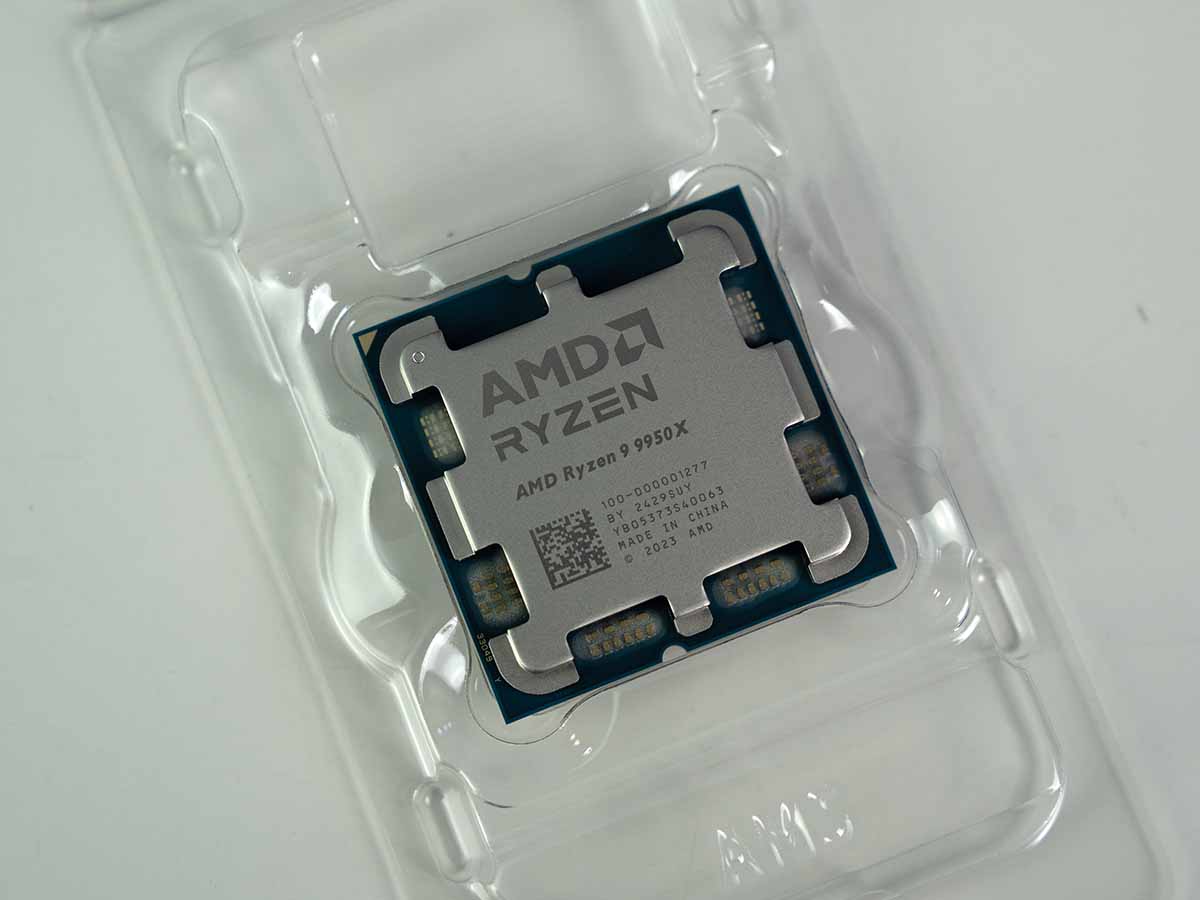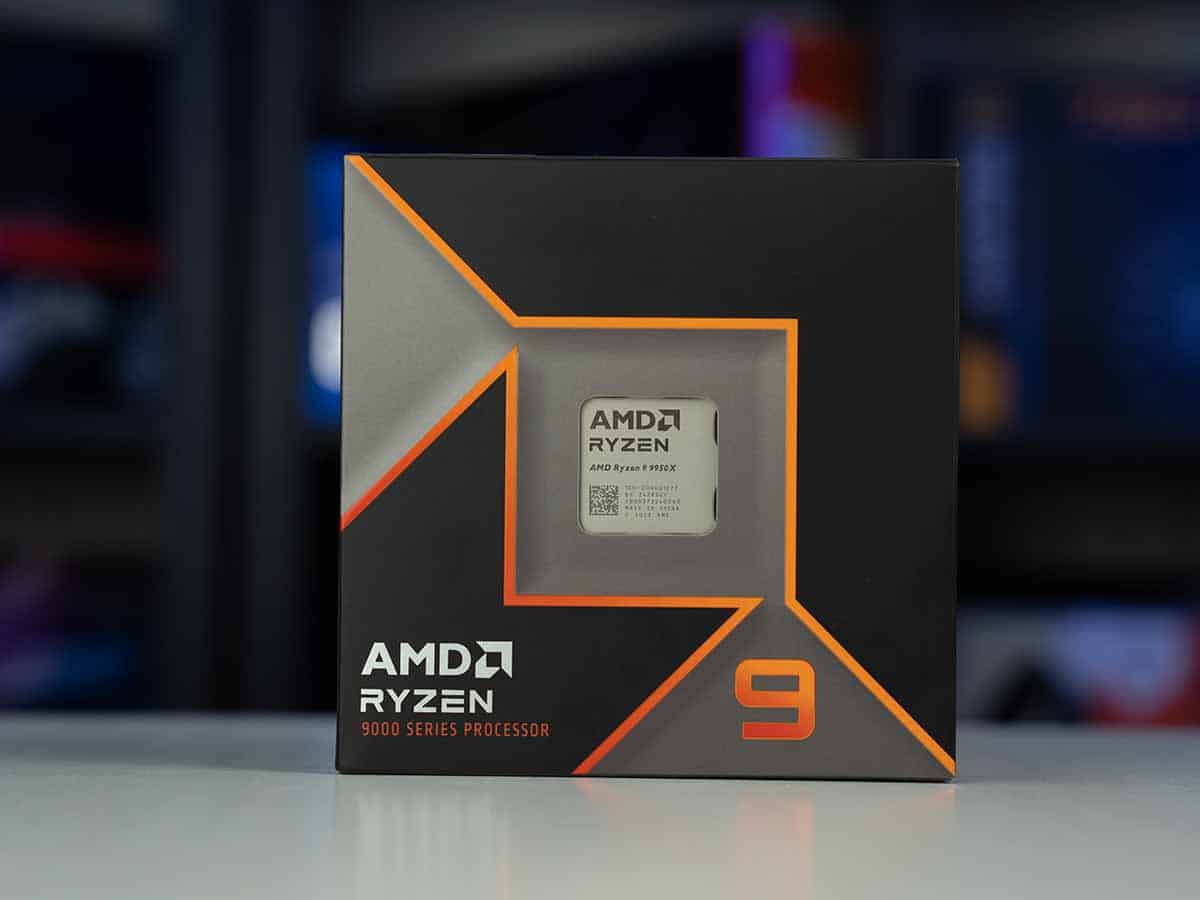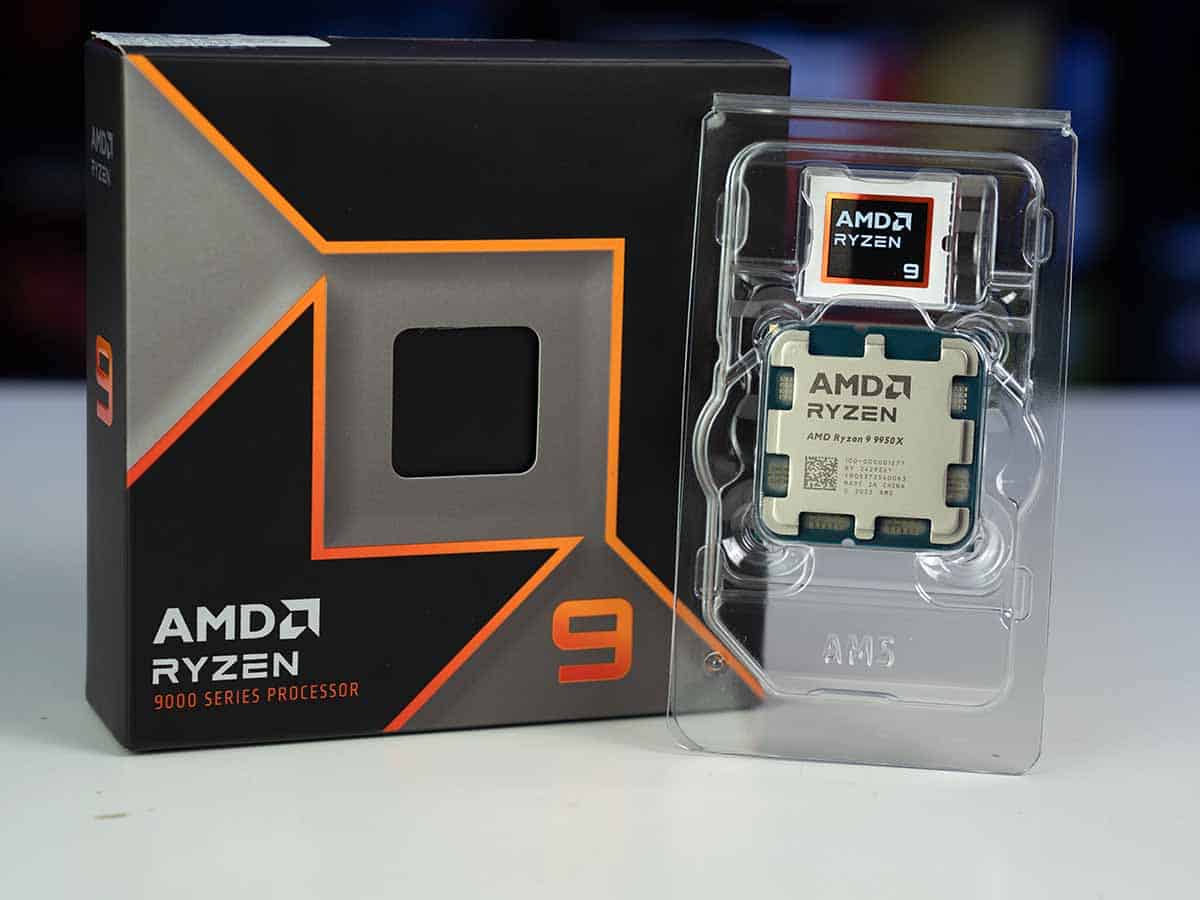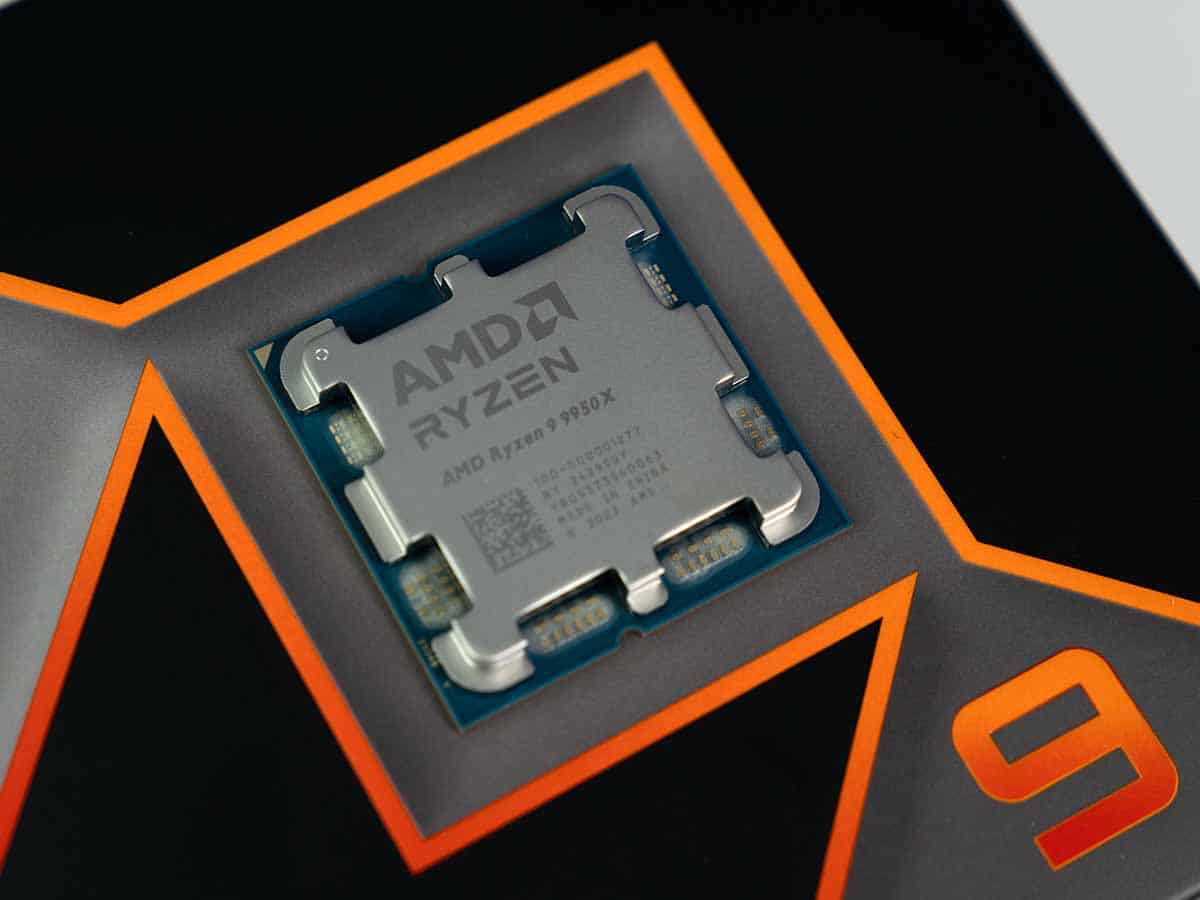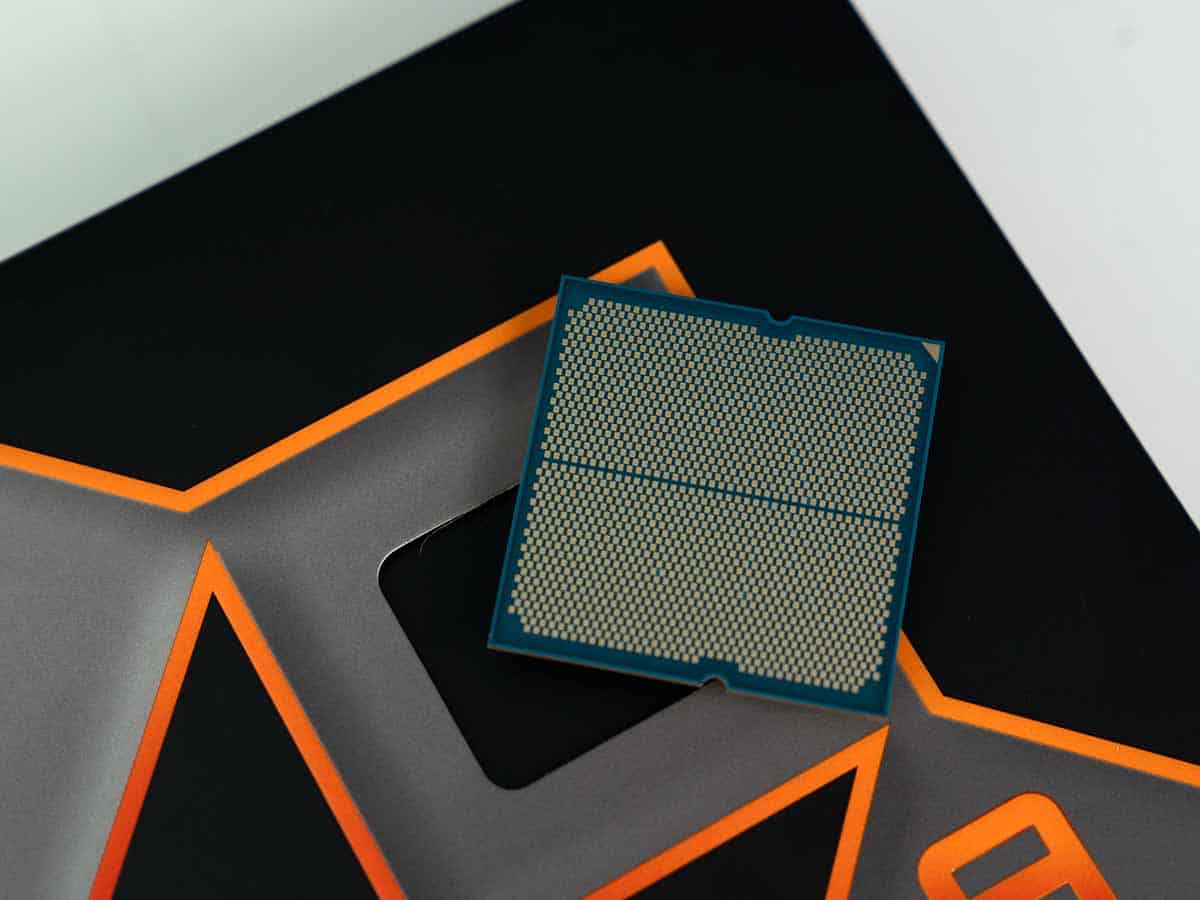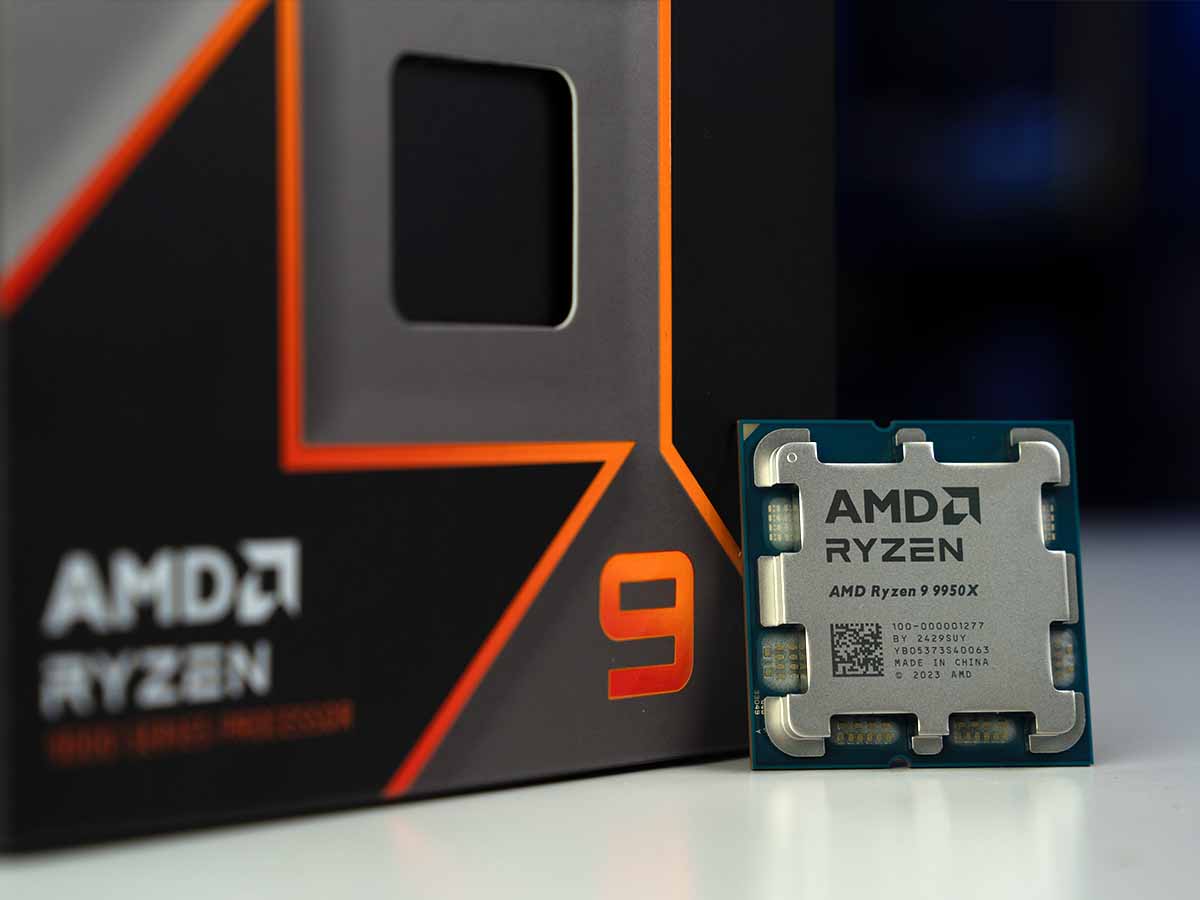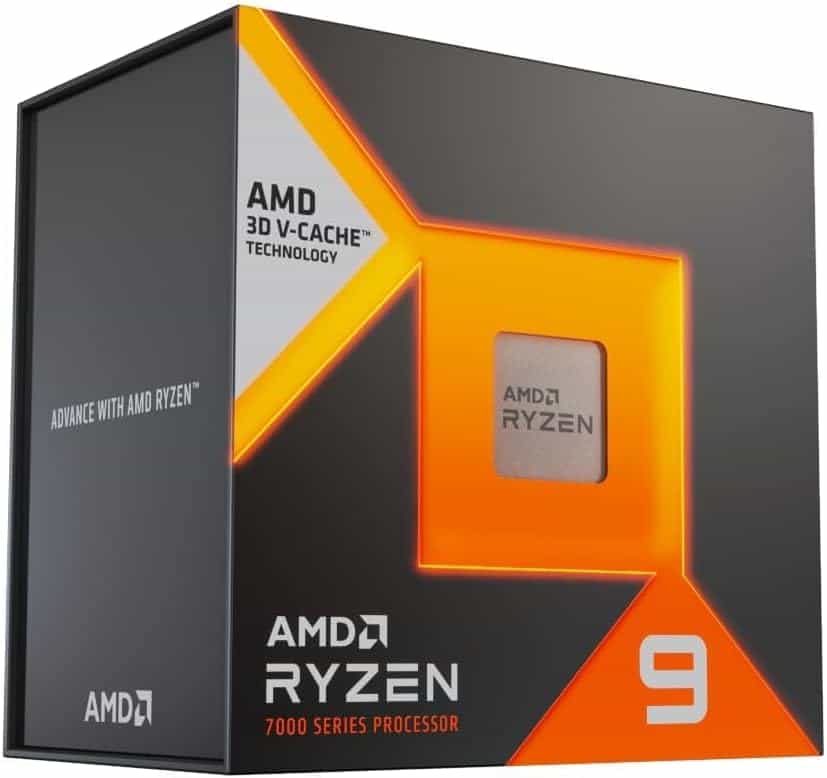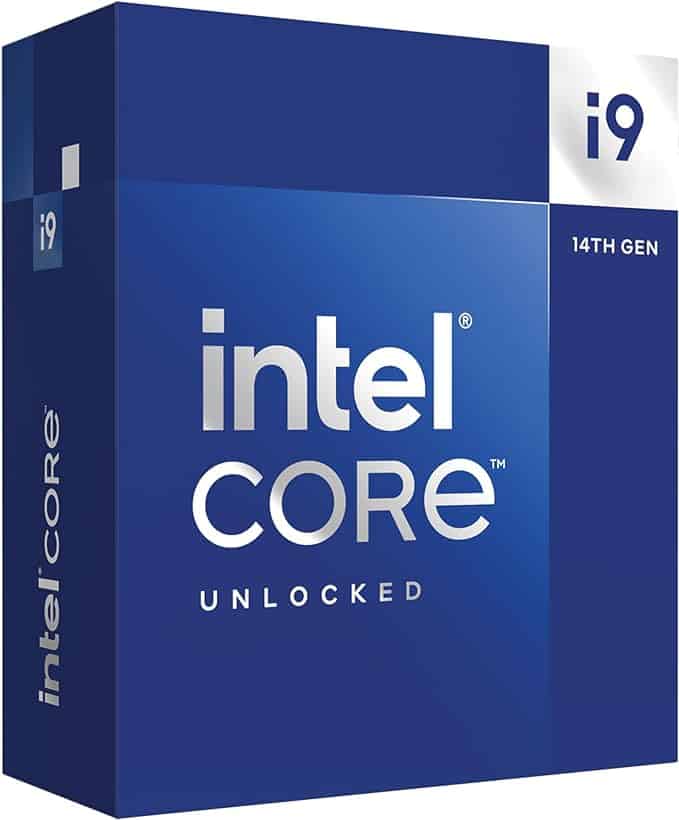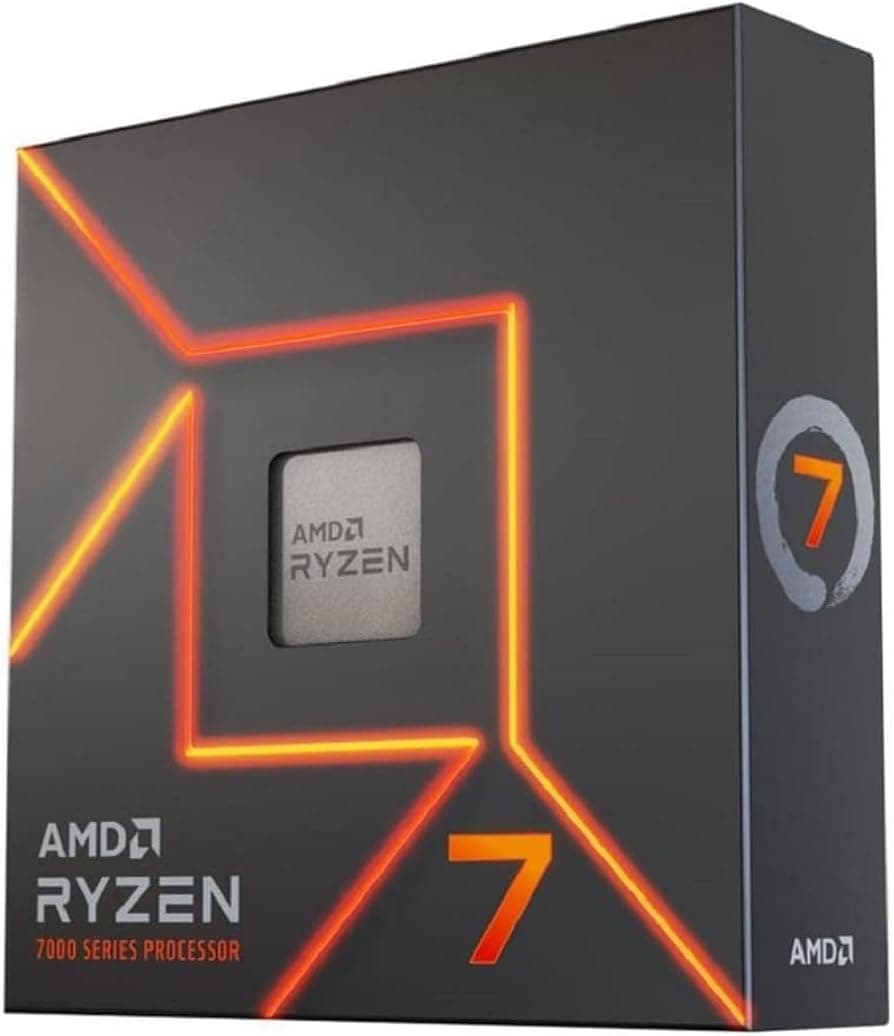AMD Ryzen 9 9950X review – A flagship worthy of the name
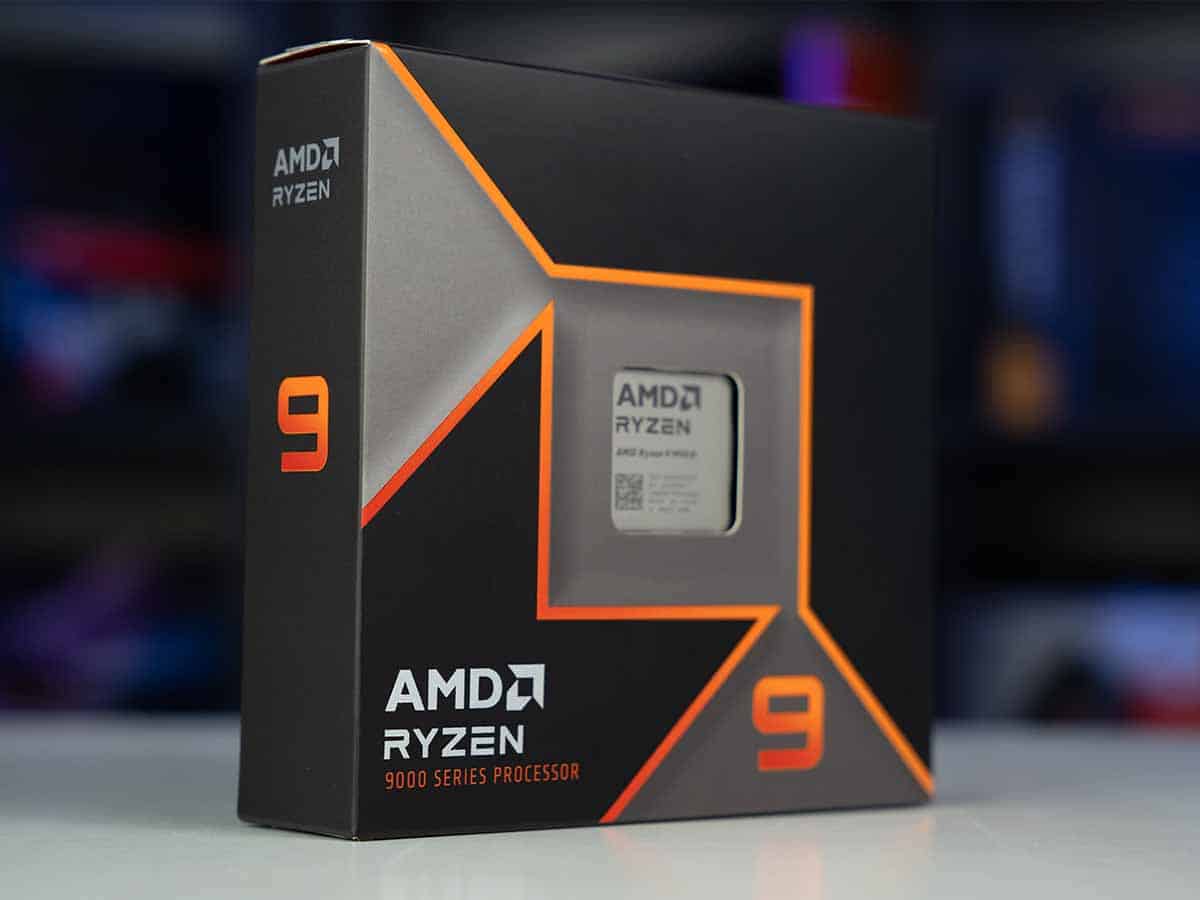
Table of Contents
The AMD Ryzen 9 9950X is the best of the best that Team Red currently has to offer, we know that the 9000 series has received a lot of backlash since its unorthodox UK launch, but it seems as though AMD did better with the Ryzen 9 offerings. As we mentioned in our 9900X review, it seemed that the higher TDP processors aren't as held back by promises of efficiency, though they still are a tad. We hope things improve for the 9950X.
This processor is meant for the PC enthusiast, it's hard to deny that this chip contains some serious performance, far beyond the needs of any standard gamer. The data scientists, renderers, and professional CPU users are likely drooling over the performance gains of AMD's latest multi-core beast. However, we have seen both the 9700X and 9600X fall short. By AMD's own reckoning, Zen 5 brings up to 16% IPC gains over Zen 4, but what does that look like in terms of real-world performance?

- Cores: 16
- Threads: 32
- Boost clock speed: 5.7 GHz
- Base clock speed: 4.3 GHz
- L3 Cache: 64 MB
- TDP: 170 W
- Platform: AMD Socket AM5
The 9950X is certainly a capable CPU with a lot to offer those looking for strong multi-threaded performance. PPBO can ramp this CPU up a few notches, but you’d better be ready to cool it. It eats 240mm AIOs for breakfast when PBO is enabled
- Strong multi-core performance
- Can be boosted a lot with PBO
- 16 cores can tackle heavy workloads
- Best performing AMD CPU so far
- Expensive – wait for a price reduction
- Will likely be outperformed by Intel’s Arrow Lake flagship
- Still suffers from AMD’s efficiency obsession
Why we gave this CPU a 4
The 9950X is the top dog of the 9000 series and it does behave as such, despite being held back a little by AMD’s bid to make the world of CPUs a more efficient place. Nothing wrong with that, but it’s not fantastic when it affects performance so much. This CPU seems to suffer less from that issue, and actually provides a powerful and stable platform on which to build a PC. The 9950X is expensive, but it does what it says on the tin, it’s a flagship that feels like a flagship.
To cut a long review short, we like this CPU, it's expensive and definitely still held back by AMD and its recent efficiency obsession, but it works. If you enable PBO on this beast, you can push it far further, just expect things to get a little hotter under the IHS.
Specifications
- Cores: 16
- Threads: 32
- Base clock speed: 4.3GHz
- Boost clock speed: 5.7GHz
- L2 Cache: 1MB (per core)
- L3 Cache: 64MB
- TDP: 170W
- Socket: AM5
As you can see from the specifications obtained by TechPowerup, the 9950X has plenty to work with. The 16 cores and 32 threads have been the bringer of flagship multi-core performance on almost every other Ryzen generation, can it do the same now? – Spoiler alert, yes, but under the right conditions.
As we have mentioned in a previous post, new TDP parameters have been set for the 9600X and 9700X in MSI BIOS', these are the first set of BIOS' to release. However, there is no sign of a TDP or power increase for the Ryzen 9 offerings. This may indicate that AMD is happy with the Ryzen 9's performance right now.
Performance

Before we dive into this chip’s performance, it's important to outline the system on which we tested it. It's also worth noting that this is the bench we have used to test all of the Ryzen 9000 series CPUs, and the 7000 series before them, so everything is very consistent.
| Component | Name |
| GPU | RTX 4070 Ti Super |
| Memory | Corsair Vengeance DDR5 @ 6400MHz |
| Motherboard | ASUS ROG Crosshair Extreme X670 |
| CPU cooler | Corsair Elite LCD Capellix 360MM |
| Power supply | ASUS ROG Thor 1000W |
| Case | Cooler Master Masterframe |
We do this to give every CPU even ground to test on and to make the CPU the only contributing factor to changing results. We outline these specifications, particularly for the gaming portion of the results, where the RTX 4070 Ti has a lot of weight.
As you can see, we spared no expense when it came to selecting components for the job. Even when we have to test and compare CPUs of different brands and generations, we try to keep the equipment as comparable as possible where we can. Obviously there are some limitations here, but we do our best.
All of our components are tested by our in-house experts and follow our how we test CPUs guide, which you can check out if you want to learn more about the process that goes on behind the scenes. This is part of our broader PC Guide Testing lab structure that we use to test everything that we get in to review.
Synthetic performance
| Benchmark | Score |
| CPU Z Single | 872 points |
| CPU Z Multi | 16,960 points |
| Cinebench R23 Single | 2,275 points |
| Cinebench R23 Multi | 40,938 points |
| Geekbench Single | 3,449 points |
| Geekbench Multi | 22,248 points |
| Blender render | Monster 267.43 SPM Junkshop 194.64 SPM Classroom 134.49 SPM |
| 7 Zip Compression 32MB (10 passes) | 50.43s |
| Handbrake TOS 4K Fast 1080P encode | Average Speed 157.5FPS Encode Time 01:54 |
The benchmark results paint a much stronger picture this time around, as the 9950X cuts through the noise to take the lead in multi-core performance. Even managing to beat the previous Intel leader, the 14900K. However, we imagine this won't be for too long with Arrow Lake on the horizon.
Both the single and multi-core performance surpassed all the other AMD CPUs we have tested, which makes sense given the IPC improvements and faster clock speeds. But efficiency is also on the up, with the 9950X only consuming around 170W because we have PBO disabled in these preliminary tests.
If we compare this to the 9900X, it's clear to see just what a difference 6 cores can make.
| Benchmark | 9950X score | 9900X Score |
|---|---|---|
| CPU Z Single | 872 points | 867 points |
| CPU Z Multi | 16,960 points | 12,773 points |
| Cinebench R23 Single | 2,275 points | 2,205 points |
| Cinebench R23 Multi | 40,938 points | 31,502 points |
| Geekbench Single | 3,449 points | 3,348 points |
| Geekbench Multi | 22,248 points | 20,524 points |
| Blender render | Monster 267.43 SPM Junkshop 194.64 SPM Classroom 134.49 SPM | Monster 200.72 SPM Junkshop 146.82 SPM Classroom 101.15 SPM |
| 7 Zip Compression 32MB (10 passes) | 50.43s | 47.64s |
| Handbrake TOS 4K Fast 1080P encode | Average Speed 157.5FPS Encode Time 01:54 | Average Speed 128.52FPS Encode Time 02:19 |
As you can see, the multi-core performance uplift is pretty substantial, with the likes of CPU-Z showing almost a 4.2K uplift in points for the 9950X. Shifting over to Cinebench, everyone's favorite table and chair renderer, you can see the points also reflect an incredible 9,436 uplift in the 9950X's favor.
With that being said, the single-core performance is not massively improved, but there is still an improvement nonetheless. We see a 5-point uplift in CPU-Z for the 9950X and a 99-point uplift in Geekbench 6 single-core. That'll be the 100MHz CPU core speed advantage the 9950X has over the 9900X.
But how does PBO factor into all this?
PBO testing
| Benchmark | 9950X (PBO) Score | 9950X score |
|---|---|---|
| CPU Z Single | 877.6 points | 872 points |
| CPU Z Multi | 17,421 points | 16,960 points |
| Cinebench R23 Single | 2,277 points | 2,275 points |
| Cinebench R23 Multi | 43,202 points | 40,938 points |
| Geekbench Single | 3,368 points | 3,449 points |
| Geekbench Multi | 22,401 points | 22,248 points |
| Blender render | Monster 278.66 SPM Junkshop 200.14 SPM Classroom 141.18 SPM | Monster 267.43 SPM Junkshop 194.64 SPM Classroom 134.49 SPM |
| 7 Zip Compression 32MB (10 passes) | 50.34s | 50.43s |
| Handbrake TOS 4K Fast 1080P encode | Average Speed 162.13FPS Encode Time 01:51 | Average Speed 157.5FPS Encode Time 01:54 |
We have to point out that PBO was enabled throughout this test, and this voids your warranty as it stands with AMD right now. We also experienced some thermal throttling in almost every test, so this isn't even the 9950X's full potential.
PBO increases the 9950X's performance by almost 2,200 points in Cinebench multi-core and around 120 points in Cinevbench's single-core tests. By enabling a cluster of settings in the BIOS, PBO was able to extract a substantial amount of performance from the 9950X.
It's important to note that the temperature of the CPU rose drastically during the PBO testing, and the 240mm AIO cooler that we installed was not able to keep up. This does not represent true PBO performance, we will be doing our investigation into the true capabilities of PBO in the future, so look out for that.
This is a formidable CPU, and even with the limitations we faced, PBO is a beast and managed to extract a lot of performance out of this CPU when we forgo the maximum TDP. If you need a CPU to chew through multi-core workloads at pace, then this just may be the CPU for you. But we don't recommend running with PBO all the time unless you have one heck of a cooling solution available.
Gaming benchmarks
| Game | 9900X | 9950X | 5800X3D |
|---|---|---|---|
| Cyberpunk 2077 | 330 FPS 1% 231 FPS | 319 FPS 1% 128 FPS | 279 FPS 1% 157 FPS |
| Day’s Gone | 245 FPS 1% 119 FPS | 279 FPS 1% 131 FPS | 283 FPS 1% 144 FPS |
For some reason, we observed the 9950X get a little lower than it should have in both cases, I think we had some kind of software issue, or the Windows version is messing with our results. You can assume that in normal operation, the 9950X will pull just ahead of the 9900X with an FPS score of around 335 FPS in Cyberpunk. At least it beats the 9900X in Days Gone.
This is an echo of a larger issue, the launch of the 9000 series was terrible, not only that, but the Windows version now comes into play, messing with performance and producing unreliable results. It’s reportedly been fixed now, making dozens of reviewers have to go back and fix their results and retest.
What do these benchmarks mean?
Our aim is to use our testing to encompass as many use cases as possible, this is because not everyone uses their CPU the same. Some may be looking for a top-notch gaming processor, whereas others may favor a strong multithreaded setup for simulation.
Synthetic benchmarks are highly predictable and repeatable, meaning they can be relied on to impart the same amount of load on the processor each time. These are particularly effective for analyzing a CPU's effectiveness in data-driven tasks, like those simulations we keep mentioning. We also use synthetic testing for analyzing overclock stability for this very reason; we know the load.

On the other hand, real-world benchmarks are more unpredictable and vary, even when you try to do the exact same thing. Gaming is a good representation of a real-world benchmark, and it tests a CPU's ability to think on the go. This unpredictability makes real-world benchmarks invaluable for revealing a CPU's true stability under pressure. These tests also go a long way when identifying system bottlenecks, because real-world tests more often than not use the entire system at once.
Price
The Ryzen 9 9950X retailed at $649 when it launched, but it can now (as of the time of writing) be found for around $623 on Amazon. A small price reduction, but it's still a lot of money for a CPU. By contrast, you can pick up a 7950X3D for $80 less, and use that money to upgrade RAM or something. This is an especially good deal if you want a more gaming-focused CPU.
Alternatives to the 9950X
You already know that I'm going to suggest the 7950X3D, which can be had for a little cheaper, or you can throw out the idea of Team Red altogether by opting for the 14900K from Intel, which is still the single-core performance king. If you want something a little better value for money, the 7800X is also a good choice. You can even use the same motherboard.
-
AMD Ryzen 9 7950X3D
- Cores: 16
- Thread: 32
- Base Clock Speed: 100 MHz
- Boost Clock Speed: 5.7 GHz
- L3 Cache: 128 MB (shared)
- TDP: 120 W
-
-
If you want the best of the best though, we do recommend waiting until the X870 motherboards release, which should be happening very soon. Just make sure you get an Intel-compatible motherboard if you end up choosing Intel instead. They may both be LGA now, but that doesn't mean they work together.
Conclusion
The 9950X certainly does better than the other 9000 series CPUs, in all areas, which is refreshing to see. I have grown tired of dissing AMD, they are still held in very high regard by myself and I just think they got a little too hung up on bringing efficiency to the table this time around.

- Cores: 16
- Threads: 32
- Boost clock speed: 5.7 GHz
- Base clock speed: 4.3 GHz
- L3 Cache: 64 MB
- TDP: 170 W
- Platform: AMD Socket AM5
The 9950X is certainly a capable CPU with a lot to offer those looking for strong multi-threaded performance. PPBO can ramp this CPU up a few notches, but you’d better be ready to cool it. It eats 240mm AIOs for breakfast when PBO is enabled
- Strong multi-core performance
- Can be boosted a lot with PBO
- 16 cores can tackle heavy workloads
- Best performing AMD CPU so far
- Expensive – wait for a price reduction
- Will likely be outperformed by Intel’s Arrow Lake flagship
- Still suffers from AMD’s efficiency obsession
However, if you forgo the efficiency and turn on PBO (which technically voids your warranty BTW) you can get some pretty amazing performance uplifts. Just keep a close eye on those temperature readings, as we did experience a lot of thermal throttling with the configuration we had. PBO is a beast that can only be tamed by the best cooling solutions, although it increased performance massively in our tests, it's unwise to run it unless you can properly cool it.
If you want a CPU that can handle even the biggest workloads without opting for an enterprise CPU, then this may just be the CPU for you. It's truly the first CPU we have seen that can give the 14900K a run for its money. Although that's probably going to change very soon with the release of Arrow Lake.
If you're thinking of this CPU, we're tempted to tell you to wait until the price has dropped a bit, this it likely to happen around the launch of the new Intel CPUs, to make these CPUs more appealing to buyers. Then might be a good time to snag a deal.

